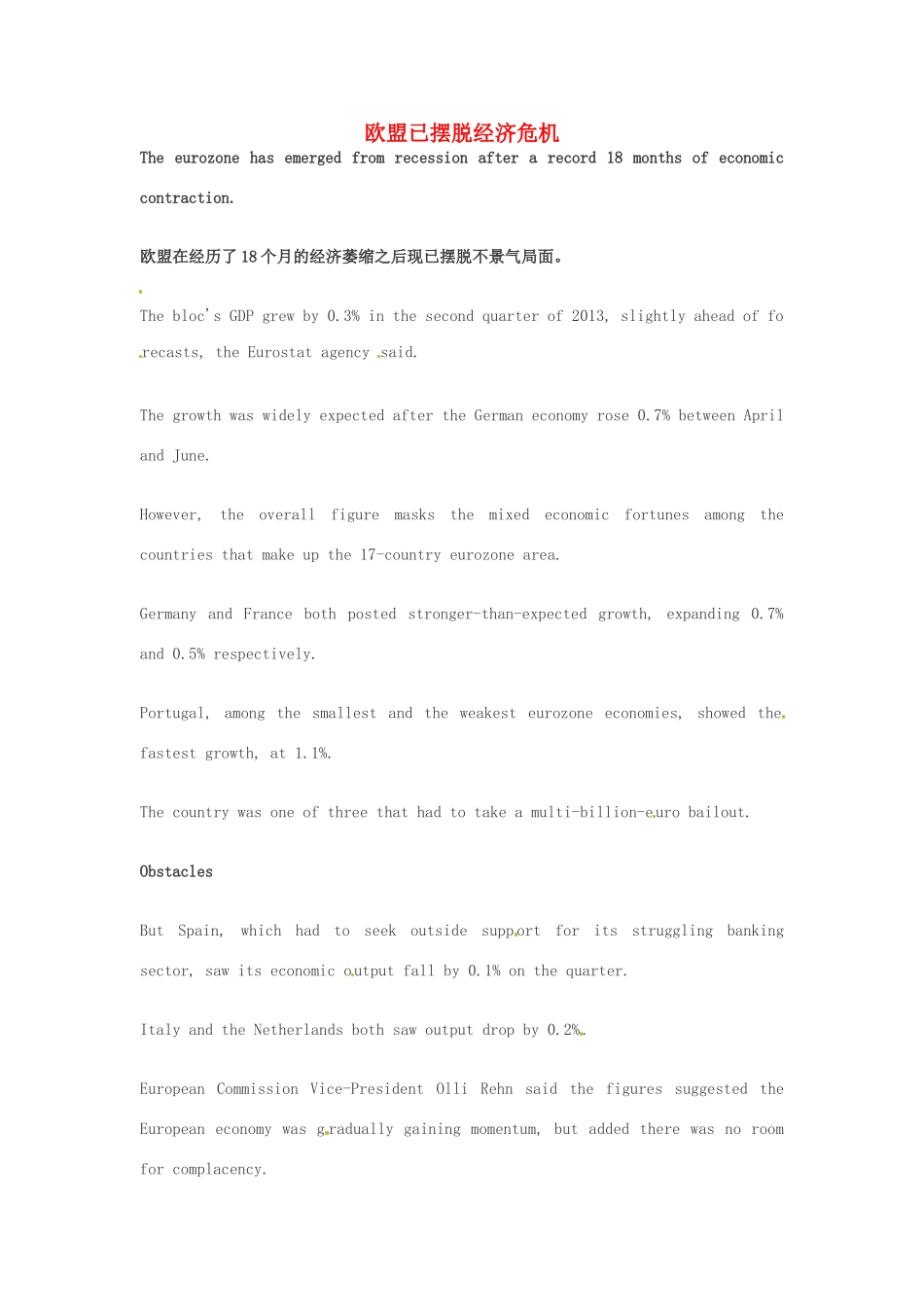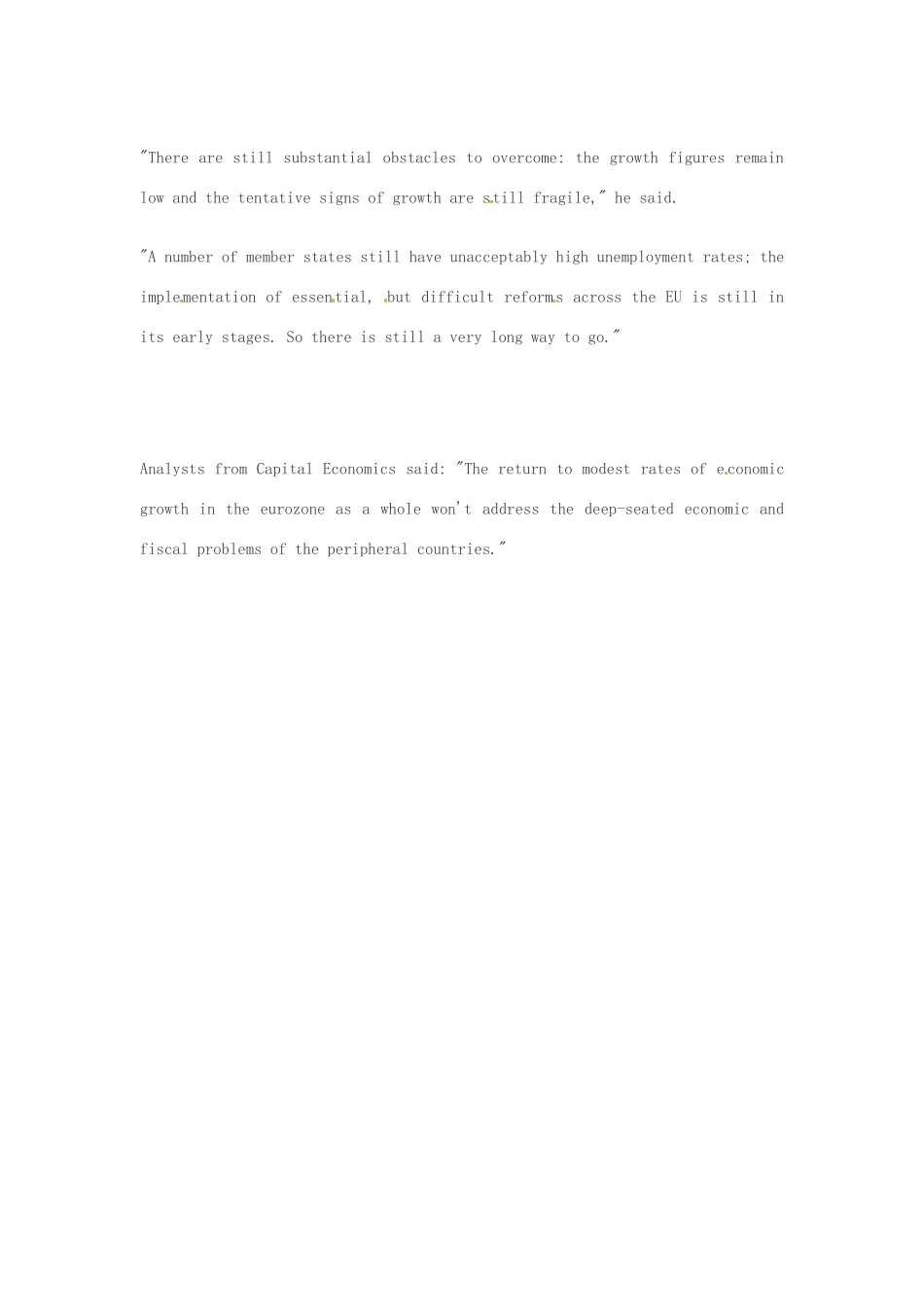欧盟已摆脱经济危机The eurozone has emerged from recession after a record 18 months of economic contraction.欧盟在经历了 18 个月的经济萎缩之后现已摆脱不景气局面。 The bloc's GDP grew by 0.3% in the second quarter of 2013, slightly ahead of forecasts, the Eurostat agency said. The growth was widely expected after the German economy rose 0.7% between April and June. However, the overall figure masks the mixed economic fortunes among the countries that make up the 17-country eurozone area. Germany and France both posted stronger-than-expected growth, expanding 0.7% and 0.5% respectively. Portugal, among the smallest and the weakest eurozone economies, showed the fastest growth, at 1.1%. The country was one of three that had to take a multi-billion-euro bailout. Obstacles But Spain, which had to seek outside supp ort for its struggling banking sector, saw its economic output fall by 0.1% on the quarter. Italy and the Netherlands both saw output drop by 0.2%. European Commission Vice-President Olli Rehn said the figures suggested the European economy was g radually gaining momentum, but added there was no room for complacency. "There are still substantial obstacles to overcome: the growth figures remain low and the tentative signs of growth are still fragile," he said. "A number of member states still have unacceptably high unemployment rates; the implementation of essential, but difficult reforms across the EU is still in its early stages. So there is still a very long way to go." Analysts from Capital Economics said: "The return to modest rates of e conomic growth in the eurozone as a whole won't address the deep-seated economic and fiscal problems of the peripheral countries."

